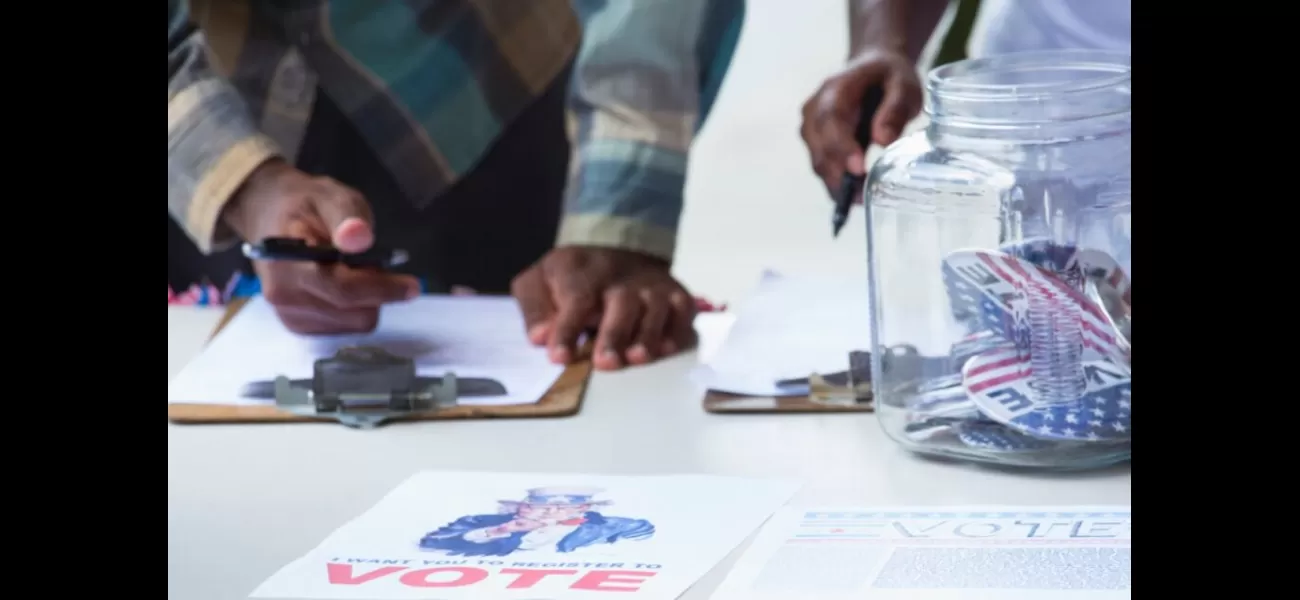SC House Race Shows How Gerrymandering Limits Black Voters' Rights
Moore, descendant of a Civil War hero, aims to make history as the second Black Democrat in Congress from South Carolina.
July 11th 2024.

The competition for the Democratic seat in South Carolina's 1st Congressional District is currently neck and neck. This comes after the Supreme Court recently ruled in favor of gerrymandering, a practice that benefits the Republican Party. The district, which was once known for its bipartisan representation, has been under the leadership of GOP Rep. Nancy Mace for the past four years. However, with the recently redrawn lines in spring 2024, the area has seemingly become more Republican-friendly, with a higher number of Republican voters and a limited growth of the Black voter population, which makes up 17% of the district.
Back in 2023, a federal three-judge panel deemed the district lines unconstitutional due to racial gerrymandering. This decision was made after it was discovered that the lines had "exiled" thousands of Democratic Black voters. However, the Supreme Court Justice Samuel A. Alito Jr. stated in May 2023 that there was not enough evidence to prove that South Carolina lawmakers had intentionally used race as a factor in drawing the lines to give the Republican Party an advantage. Prior to this ruling, federal courts did not have the power to block gerrymandering. Some Democratic voters, including a supporter of the Black Democratic nominee for the 1st District, Michael B. Moore, believe that gerrymandering is a thing of the past. In fact, during a prayer service, a woman who was praying for Moore said, "We don't care about no gerrymandering."
However, the issue of gerrymandering and redistricting is still a hot topic in many Republican-led states, including South Carolina. This has raised concerns among Black voters who already struggle with political representation. Experts believe that the recent decisions from the courts have limited the ability to ensure that minority voters have an equal say in the political process. As Harvard Law School professor Nicholas Stephanopoulos stated, "For minority voters, for people who believe in partisan fairness, federal litigation just isn't the answer under the Roberts court."
Moore, who is the great-great-grandson of a Civil War hero, is determined to give South Carolina a fighting chance by becoming the second Black Democrat in Congress, following in the footsteps of Rep. James E. Clyburn. He is not only focused on addressing issues such as the rise in crime and abortion, but he is also determined to combat gerrymandering. "I'm looking to build on battles started by my ancestors," Moore shared with a group of voters. "There are very serious threats to democracy that we all know are going on - even in this district, where 30,000 Black folks were gerrymandered out of the district. Either we believe in 'one person, one vote' or we don't." He has received support in his fight against gerrymandering from Black voters represented by the NAACP Legal Defense Fund, who previously sued over the original gerrymandering decision.
Back in 2023, a federal three-judge panel deemed the district lines unconstitutional due to racial gerrymandering. This decision was made after it was discovered that the lines had "exiled" thousands of Democratic Black voters. However, the Supreme Court Justice Samuel A. Alito Jr. stated in May 2023 that there was not enough evidence to prove that South Carolina lawmakers had intentionally used race as a factor in drawing the lines to give the Republican Party an advantage. Prior to this ruling, federal courts did not have the power to block gerrymandering. Some Democratic voters, including a supporter of the Black Democratic nominee for the 1st District, Michael B. Moore, believe that gerrymandering is a thing of the past. In fact, during a prayer service, a woman who was praying for Moore said, "We don't care about no gerrymandering."
However, the issue of gerrymandering and redistricting is still a hot topic in many Republican-led states, including South Carolina. This has raised concerns among Black voters who already struggle with political representation. Experts believe that the recent decisions from the courts have limited the ability to ensure that minority voters have an equal say in the political process. As Harvard Law School professor Nicholas Stephanopoulos stated, "For minority voters, for people who believe in partisan fairness, federal litigation just isn't the answer under the Roberts court."
Moore, who is the great-great-grandson of a Civil War hero, is determined to give South Carolina a fighting chance by becoming the second Black Democrat in Congress, following in the footsteps of Rep. James E. Clyburn. He is not only focused on addressing issues such as the rise in crime and abortion, but he is also determined to combat gerrymandering. "I'm looking to build on battles started by my ancestors," Moore shared with a group of voters. "There are very serious threats to democracy that we all know are going on - even in this district, where 30,000 Black folks were gerrymandered out of the district. Either we believe in 'one person, one vote' or we don't." He has received support in his fight against gerrymandering from Black voters represented by the NAACP Legal Defense Fund, who previously sued over the original gerrymandering decision.
[This article has been trending online recently and has been generated with AI. Your feed is customized.]
[Generative AI is experimental.]
0
0
Submit Comment





